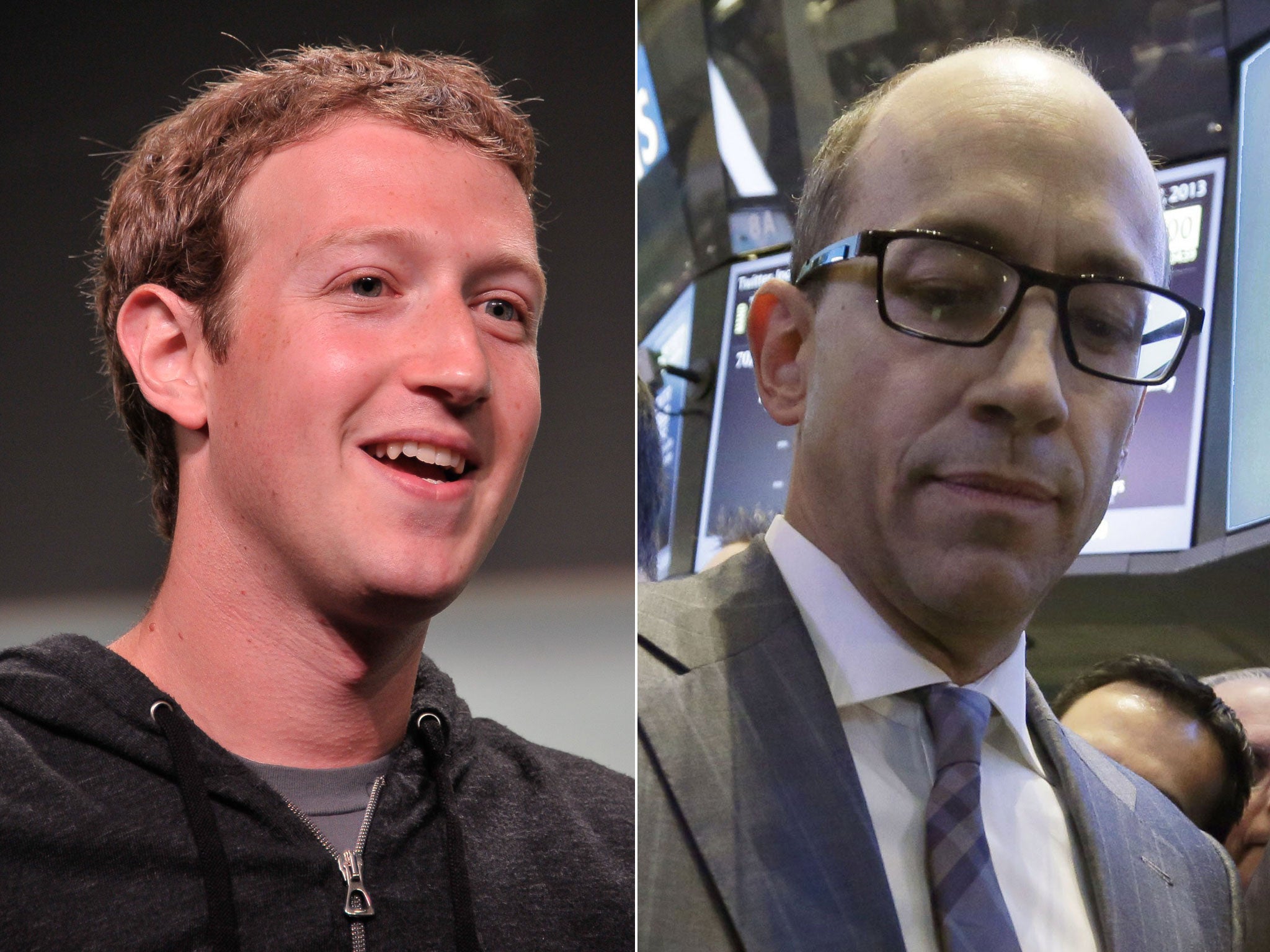If Twitter wants to stop making losses, it needs to take a leaf out of Facebook and show that it has a warm, cuddly side
Facebook makes users feel like stars, Twitter makes them feel like wallflowers at a party

Your support helps us to tell the story
From reproductive rights to climate change to Big Tech, The Independent is on the ground when the story is developing. Whether it's investigating the financials of Elon Musk's pro-Trump PAC or producing our latest documentary, 'The A Word', which shines a light on the American women fighting for reproductive rights, we know how important it is to parse out the facts from the messaging.
At such a critical moment in US history, we need reporters on the ground. Your donation allows us to keep sending journalists to speak to both sides of the story.
The Independent is trusted by Americans across the entire political spectrum. And unlike many other quality news outlets, we choose not to lock Americans out of our reporting and analysis with paywalls. We believe quality journalism should be available to everyone, paid for by those who can afford it.
Your support makes all the difference.Facebook turned 10 this week, and it celebrated by giving every user the gift of making their own Facebook movie. These mini-biopics edit each user’s site history into a one-minute montage set to a plinking piano soundtrack, the sort of epic, heart-squeezing slush you hear on nature documentaries. They begin with birth, or the date one joined Facebook. They move through “first moments” and “most liked posts”, and end with a big blue Like symbol. Really, Facebook, you shouldn’t have.
They have gone down very well. Hundreds of millions of people have shared their virtual life stories this week. Even if it is very obviously a marketing ploy, a means to generate clicks, user data and goodwill, people like it. And why not? It’s a nice thing – celebratory, cute, even a bit moving.
It’s nice to see your friends’ major life moments highlighted, even if those major life moments have been decided on by Facebook and how many likes a moment got. So you might end up with a picture of Andy Murray winning Wimbledon being inserted into your personal story. Who cares? Look! It’s a movie about me!
Twitter has had a less celebratory week. On Wednesday night, the social networking site reported losses of $645m in 2013. The results led to a drop in the company’s share price of more than 23 per cent; $6.5bn has been wiped off its value. It is not attracting new users at the rate it expected and those users it has are not checking in as often as they used to. Is this the beginning of the end for Twitter? Probably not; it is just the beginning. Facebook spent years in the red before it turned a real profit.
Still, something is going wrong so something must be done. According to one analyst, only Mummy can save Twitter now: “Is your mom on Facebook? Yes. You ask that same question about Twitter, the answer is almost always no. The question is: can they ever become mainstream like Facebook is?” While tech-heads have been predicting Facebook’s demise for years, it has reached the age of 10, which is about 70 in internet years. It has five times as many active monthly users as Twitter. Last year its profits hit $1.5bn.
For all of its revolution-starting and news-generating and spats, Twitter has yet to capture this valuable “Mom demographic”, which has loyalty, time and disposable income to hand. Perhaps it is because while Facebook is all about being inclusive and sharing – whether baby pictures or holiday memories – Twitter is harder, more exclusive and still mainly consists of journalists shouting at one another. Its 140-character limit demands wit and pithiness. It also breeds snark and trolls.
The real clue is in those movies, though. Facebook knows that social networking is less about networking than it is about cultivating a social persona. It makes its users feel like stars in their own film while Twitter makes them feel like wallflowers at a party. The results speak for themselves. Facebook makes £5.11 per active user per month; Twitter makes less than half that. While Facebook pours its every effort into knowing everything about its biggest asset – its users – so that it can profit from them, Twitter still knows relatively little. In future, then, users can probably look forward to far more “personalised” features on Twitter, whether they want them or not. Because it’s in the minutiae of our lives, the background details to our personal movies, that the real social networking cash lies.
Join our commenting forum
Join thought-provoking conversations, follow other Independent readers and see their replies
Comments